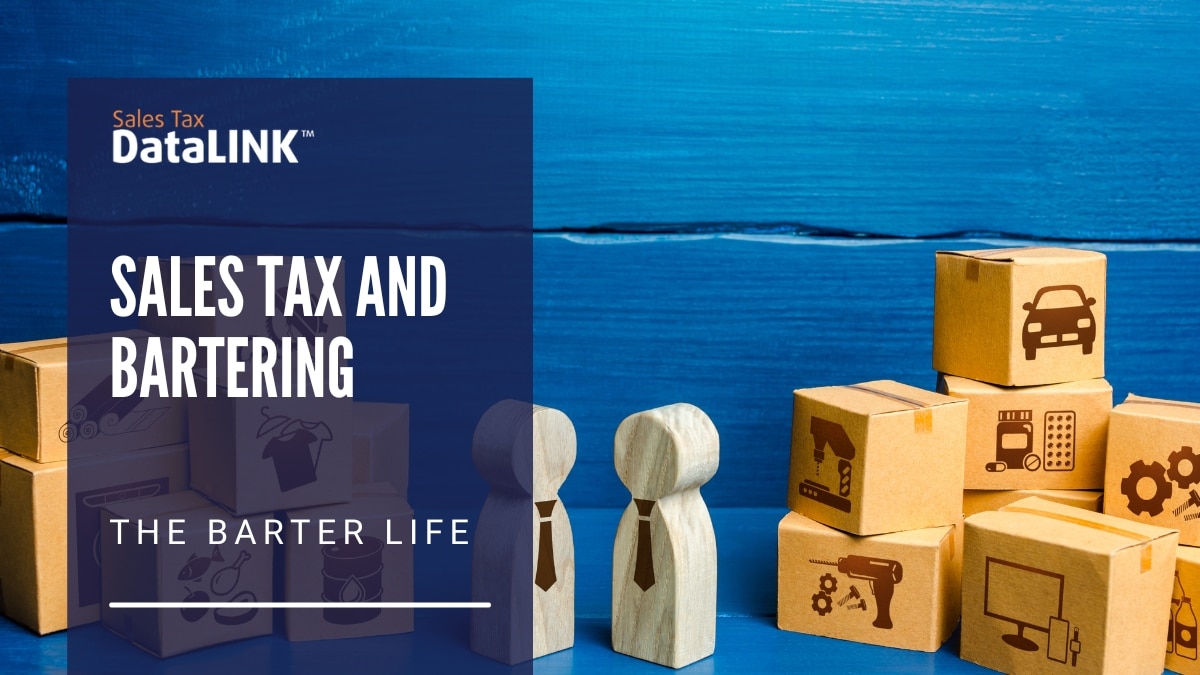The Barter Life
It used to be that businesses only had to collect and file sales taxes if they had a physical presence in a state: an office, a store, a warehouse, or a factory, for example. A small business using e-commerce to sell in other states or a manufacturer that did some direct-to-consumer sales outside its home state could skip the whole thing.
The Supreme Court’s landmark decision in the Wayfair case changed all that. Now any business that has significant sales — often $100,000 or 200 transactions — in any state has established nexus in that state.
Some small businesses thought they had a way to avoid collecting those taxes: barter. If you sell goods and services, you are responsible for sales tax compliance. It’s hard to predict which states will reach the threshold for you by the end of the year…and once you’ve registered for sales tax, you have to continue filing even if you have no sales at all the following year. It’s a lot of trouble.
But if you trade your goods and services for other goods and services, you don’t have to worry about sales tax, right? You could trade your construction skills for a stay at a resort that needs a new building. A year’s subscription to your prepaid food delivery service could be swapped for a work of art. Both parties get what they want, and there are no pesky taxes to consider because no money changed hands.
Right?
Sales tax required
Wrong, actually, A barter has to be documented just as a cash transaction is. Sales tax must be collected and then remitted to the jurisdiction where the transaction took place.
In fact, there may be sales tax required on both sides of the transaction.
Remember the example of the construction completed for a report? If you did that work in a state where construction services are taxable, you have to calculate the fair market value of your construction services and charge sales tax on that amount. The resort owner must pay you in cash and you must remit that payment to the state when you file your sales tax return.
But the resort owner is giving you a nice long stay in exchange. She has to calculate the fair market value of that stay and charge you the appropriate sales taxes for that stay. You will need to pay the sales tax in cash, and she will need to file and remit sales taxes as usual.
In effect, that single barter transaction creates a double sales tax requirement.
What about the other example? You are swapping a year’s worth of your prepaid food subscription service for a sculpture. As it happens, you are sending your food boxes to an artist who lives in a state where groceries are not taxable. If your food boxes contain only groceries, you don’t have to charge sales tax.
However, you might have to charge sales tax on the shipping fees.
The work of art is probably taxable, so you will have to pay sales tax on the fair market value of that artwork, even if that makes your barter seem uneven.
Sales tax and barter
For barter transactions just as for cash transactions, you have to determine whether your goods and services are taxable. You must determine whether you have (or will have by the end of the year) nexus in the jurisdiction where the transaction takes place. If so, you’ll need to register to collect sales tax.
You have to calculate the correct sales tax, collect it, calculate the sales tax for the month, quarter, or year as the case may be, file your sales tax return, and pass the collected sales tax along to the government.
Barter doesn’t turn out to be any simpler, from the point of view of sales tax, than cash sales.
Outsource
Sales tax is complicated, whether it’s barter or cash. Sales Tax DataLINK can help. Our software allows a very high level of accuracy while being easy to use. Our pricing is transparent and predictable. We can also take care of your entire sales tax compliance.
We offer full sales tax services, with expert accountants available for advisory. Call us at 479-715-4275 and let us help make your sales tax compliance more manageable.




